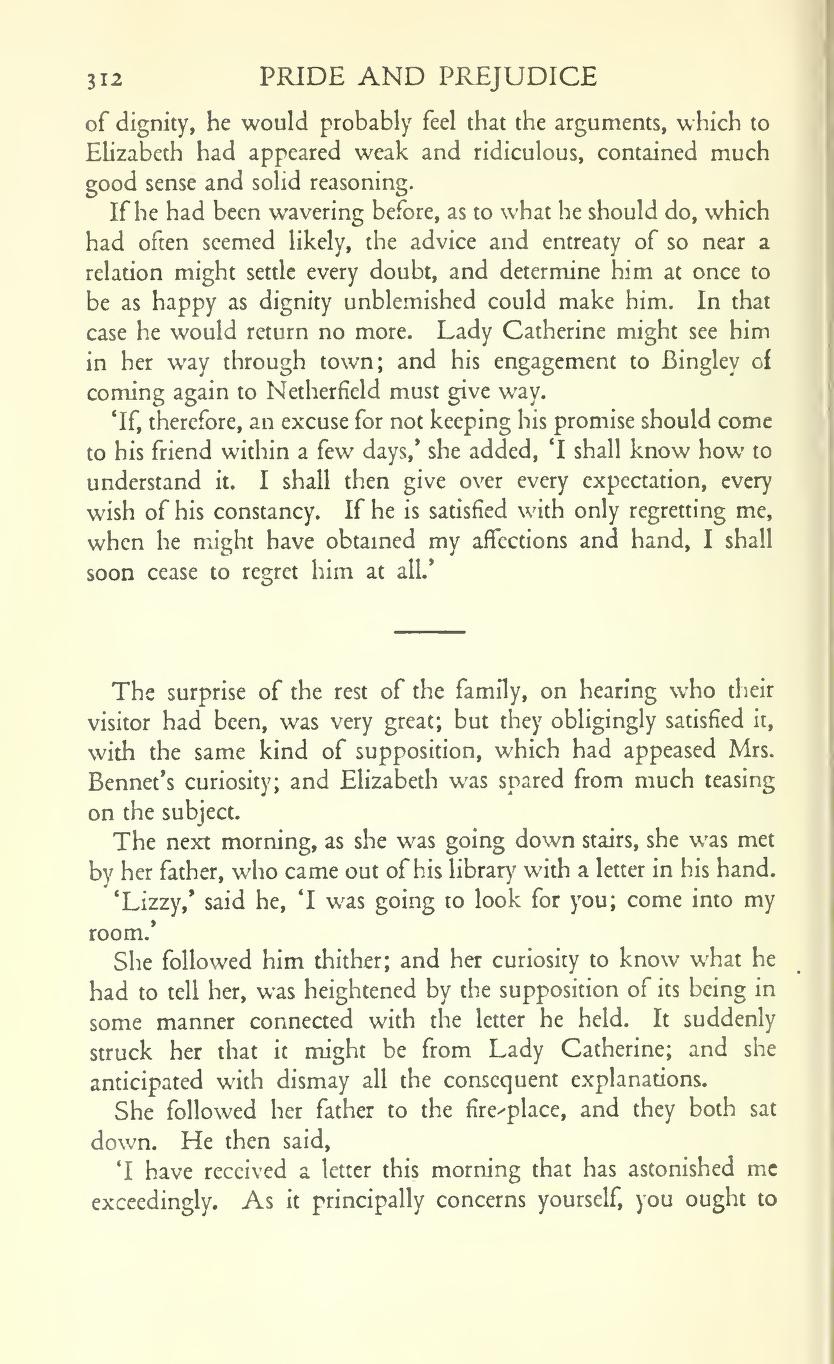 ............prev.....................next
............prev.....................next{{prxprp312.jpg}} || 312 PRIDE AND PREJUDICE ||
of dignity, he would probably feel that the arguments, which to
Elizabeth had appeared weak and ridiculous, contained much
good sense and solid reasoning.
If he had been wavering before, as to what he should do, which
had often seemed likely, the advice and entreaty of so near a
relation might settle every doubt, and determine him at once to
be as happy as dignity unblemished could make him. In that
case he would return no more. Lady Catherine might see him
in her way through town; and his engagement to Bingley of
coming again to Netherfield must give way.
'If, therefore, an excuse for not keeping his promise should come
to his friend within a few days,' she added, 'I shall know how to
understand it. I shall then give over every expectation, every
wish of his constancy. If he is satisfied with only regretting me,
when he might have obtained my affections and hand, I shall
soon cease to regret him at all.'
The surprise of the rest of the family, on hearing who their
visitor had been, was very great; but they obligingly satisfied it,
with the same kind of supposition, which had appeased Mrs.
Bennet's curiosity; and Elizabeth was spared from much teasing
on the subject.
The next morning, as she was going down stairs, she was met
by her father, who came out of his library with a letter in his hand.
'Lizzy,' said he, T was going to look for you; come into my
room.'
She followed him thither; and her curiosity to know what he
had to tell her, was heightened by the supposition of its being in
some manner connected with the letter he held. It suddenly
struck her that it might be from Lady Catherine; and she
anticipated with dismay all the consequent explanations.
She followed her father to the fireplace, and they both sat
down. He then said,
'I have received a letter this morning that has astonished me
exceedingly. As it principally concerns yourself, you ought to
[[312]]